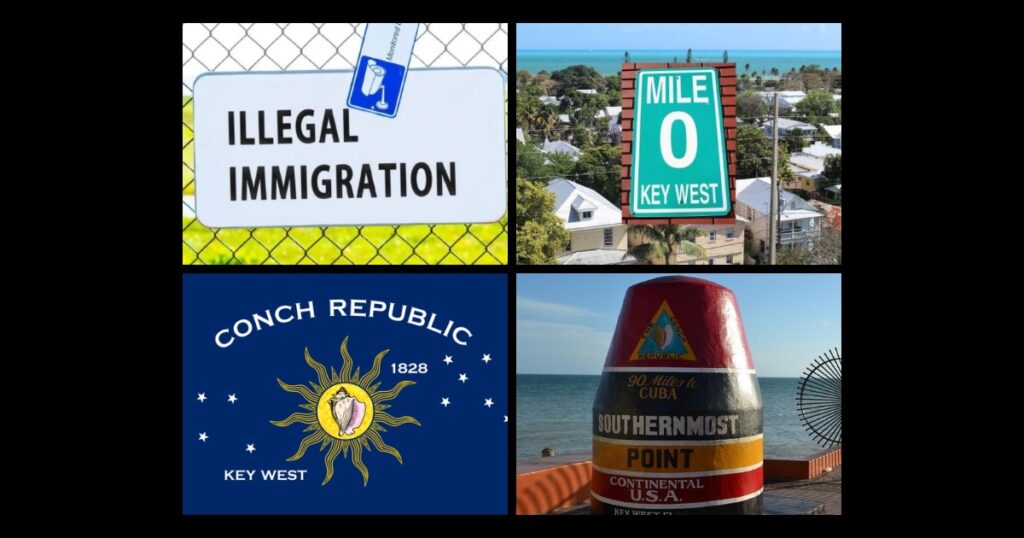KIE WEST, Fla. — On Monday night, the Key West City Commission voted at a margin of 6-1, officially voiding a 287(g) contract with U.S. Immigration Customs Enforcement (ICE).
The city’s agreement was initially signed on March 4, 2025 by police chief Shaun Brandenburg and mayor.
Commissioner Monica Haskell, who sponsored the resolution, said the contract was void from the start because it was concluded without legislative approval. She and five other commissioners argued that the policy amounted to an overreach by both federal and state governments.
The Brandenburg Police Chief defended his decision to sign the agreement in March, saying he felt it was legally mandated under guidance from Florida Attorney General James Usmier.
Brandenburg said it acted under the belief that it could violate new Florida laws requiring local cooperation with federal immigration authorities. However, several commissioners expressed dissatisfaction that such major policy changes were implemented without their knowledge or the public vote.
During the meeting, Commissioner Samuel Kaufman stressed that Key West, although not a sanctuary city, is proud of its immigrant community and will not allow law enforcement to be weaponized against them.
Commissioner Donald “Donnie” Lee proposed that the police chief was put in an impossible position by the state leaders and called the 287(g) contract “a political setting.”
The resolution passed Monday night will formally void the contract and direct city staff not to enter into similar contracts in the future, unless enforced by court orders. The city has also made it clear that it will continue to comply with formal warrants or legal detainees issued by federal or state authorities, but will not actively enforce immigration laws.
Following the vote, Uthmeier criticized the committee’s decision with Key West saying, ” [his] Immediately in the office. ” The escalating tension reflects wider legal and political conflict in Florida, where all 67 county sheriffs signed similar ice cooperation agreements as part of Gov. Ron DeSantis’ crackdown on illegal immigration.
The legality of demanding cities to enforce immigration laws under state mandate is currently the subject of lawsuits filed by the City of South Miami. Cases could set statewide precedents.
Key West’s move to reject the contract could be a model for other municipalities who want to resist the entanglement caused by federal immigration enforcement. Advocates say the vote is not only a procedural responsibilities, but a moral attitude in the defense of immigrant families, part of the island’s urban fabric.
As immigration enforcement grows statewide under updated federal partnerships, the committee’s decision presents a rare, symbolic stance on what critics call criminalisation of immigrant status.

The resolution passed Monday night will formally void the contract and direct city staff not to enter into similar contracts in the future, unless enforced by court orders. The city has also made it clear that it will continue to comply with formal warrants or legal detainees issued by federal or state authorities, but will not actively enforce immigration laws.
Following the vote, Florida Attorney General James Usmieyer keenly criticised the committee’s decision, warning Key West “heard from it.” [his] Immediately in the office. ” The escalating tension reflects wider legal and political conflict in Florida, where all 67 county sheriffs signed similar ice cooperation agreements as part of Gov. Ron DeSantis’ crackdown on illegal immigration.
The legality of demanding cities to enforce immigration laws under state mandate is currently the subject of lawsuits filed by the City of South Miami. Cases could set statewide precedents.
Key West’s move to reject the contract could be a model for other municipalities who want to resist the entanglement caused by federal immigration enforcement. Advocates say the vote is not only a procedural responsibilities, but a moral attitude in the defense of immigrant families, part of the island’s urban fabric.
As immigration enforcement grows statewide under updated federal partnerships, the committee’s decision presents a rare, symbolic stance on what critics call criminalisation of immigrant status.
The major West’s decision to refuse enforcement of federal immigration is consistent with the historical legacy of resistance. Most notably, it is demonstrated by its symbolic separation from the United States, which was declared “the Republic of Conti” in 1982. The protest took place in the creation of Border Patrol obstacles against US 1, effectively sequestering Florida keys from other parts of the country. In response to concerns about tourism impacts and government overrecognition, major Western authorities declared independence, raised their own flags and humorously declared war with the United States.
The movement was largely symbolic, but reflects the key independent spirit and broader sentiment regarding the opposition to perceived government invasion. By voting to end the agreement with ICE, the city positioned itself against federal and state entities in favour of its values. Residents of the Republic of Conchi once resisted being treated as outsiders from their own countries. Similarly, city commissioners today have expressed concern that participation in immigration enforcement could undermine community trust and inclusiveness.
This historical context reveals the continuity of Key West’s identity and highlights the interaction of autonomy, tolerance and community to external political pressures. The cities that once issued mock passports and declared independence from Washington claim local control over police responsibility, regardless of immigration circumstances, particularly in relation to the treatment of all residents.


